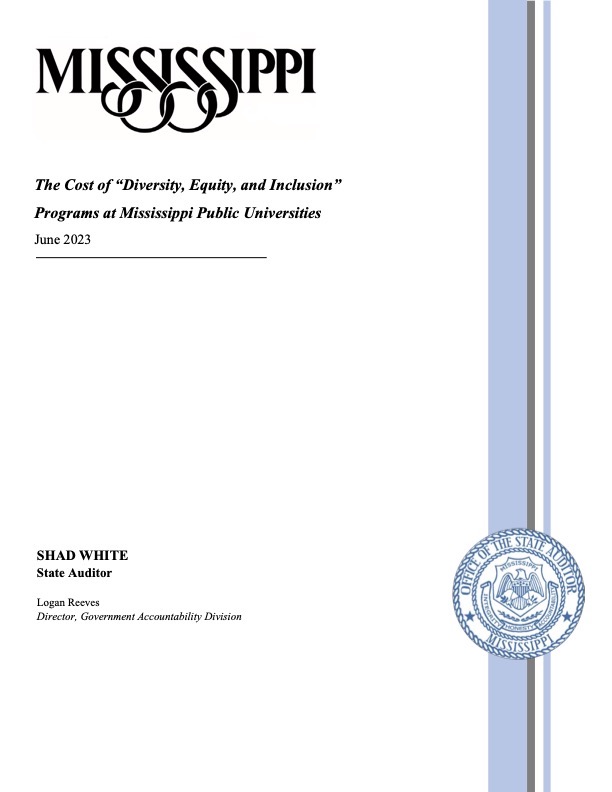 Shad White, the auditor for the State of Mississippi, recently released a report showing how much was being spent on diversity initiatives by public universities in the state.
Shad White, the auditor for the State of Mississippi, recently released a report showing how much was being spent on diversity initiatives by public universities in the state.
The report found that Mississippi universities reported spending $23.4 million on diversity programs from July of 2019 to now. The self-reported expenditures from the universities reveal a wide range of spending:
• Nearly $11 million of state taxpayer funds went to DEI programs
• 70 percent of DEI spending in 2023 was spent on salaries for DEI employees
• DEI spending has increased 47 percent since 2019
“One unfortunate statistic was the amount of money spent on DEI salaries and the lack of money spent on scholarships,” White said. “If the real goal of DEI was to increase diversity at the universities, one would think more money would be going to scholarships for poor students instead of adults’ paychecks.”
In response, Mark E. Keenum, president of Mississippi State University, issued a statement that read:
“In keeping with our land-grant mission and our longstanding commitment to inclusive excellence, Mississippi State University operates an Office of Access, Diversity, and Inclusion. That office is designed to increase higher education access and degree completion for underrepresented students, which is a necessity at Mississippi’s leading research university.
“Significantly, MSU enrolls a higher percentage of African Americans than any other university in the Southeastern Conference and a greater proportion of African Americans than any other historically white land-grant university in the nation. MSU’s ADI program not only seeks to assist those students, but also empowers military veterans, first-generation students, former foster home students, students with a myriad of disabilities, Native American students, and others with a program goal of growing student success and degree attainment to help them lead more productive lives.
“We believe our ADI program is fully compliant with all relevant current federal and state policies regarding such programs and that these expenditures represent a necessary and appropriate investment in Mississippi’s future.”
The board of Mississippi Institutions of Higher Learning, the state governing board on higher education, also defended diversity programs by saying:
“Campus diversity programs support a broad range of students by helping them find a sense of belonging in the university community which enhances the educational experience for all students and benefits the greater university community. Our public universities have diverse student bodies and an obligation to support them. Spending on diversity programs is less than one percent of appropriations received from the state and the system budget. Providing programs to retain students so they can graduate and join the workforce is a worthy investment that strengthens our universities and our state.”

